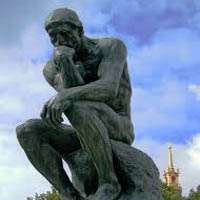Jonathan Reid typ osobowości MBTI
Osobowość
"Jaki typ osobowości jest {profilename}? {profilename} jest typem osobowości {mbti} w mbti, {enneagram} - {iv} - {tritype} w enneagram, {big5} w Big 5, {sociionics} in Socionics."
Jonathan Reid: LEVF or LEFV? The Attitudinal Psyche theorizes that all individuals have a defined structure of fundamental attitudes that define their disposition. This disposition is categorized into four main aspects of reality: Volition (V): willpower, desires, planning, personal direction, future, goals, responsibilities, character or personal identity, control, authority, power, purpose, dignity; Logic (L): truth-seeking, facts, data comparisons, rationality, reasoning, argumentation, cognition, calculations, logical evaluations, categorizations, systems, analysis and proof; Fundamentals (F): materials, location, environment, practicality or practical skills, bodily sensations, appearances or aesthetics, nutrition, health, hygiene, possessions, comfort, hunger, instincts and the body; Emotion (E): reactions, moods, affects, tone, expressions, imagination, associations, attachments, relationships, morals and passion. In each individual, these four aspects are organized into four positions (from most relevant to least relevant). Each position expresses a positive or negative disposition toward oneself and others. 1st Aspect: Confident (self-positive, others-negative) The aspect that is in this position is accumulated by the individual for himself. "I am the driver in this aspect." 2nd Aspect: Flexible (self-positive, others-positive) The aspect in this position is available to all people at all times. "I can choose to go with the flow or just observe it and observe it with others." 3rd Aspect: Insecure (self-negative, others-negative) The aspect is seen as anxious, violent, and happens to you or around you without your consent. "I cannot control the aspect naturally unless I pay extreme attention to it." 4th Aspect: Unbothered (self-negative, others-positive) The aspect is fearlessly ignored by the self. "I give the aspect freely to the world. I do not need it unless it is imperative for my survival." The 1st and 4th aspects are results-oriented, as the individual tends to be confident or carefree when dealing with the aspects here. The 2nd and 3rd aspects are process-oriented, meaning that the aspects in these positions will require more time and thought from the individual. (Results-Oriented Logic) 1L - Subtype: 1L "...Just rational thoughts." Looking at Jonathan Reid's statements, as a doctor and a vampire, Jonathan uses logic extensively to understand his new vampire condition, analyze his options, and seek answers. This makes him a Type 5 (Observer) on the Enneagram. He is constantly engaged in the search for rational solutions and understanding the complexities of his situation. (Process-Oriented Emotion) 2E - Subtype: 1E "I am Jonathan Reid, a doctor who has lost everything. I am both predator and prey, a monster and a man." Emotion comes next, as Jonathan is deeply affected by his emotions, especially when dealing with his morality, his relationships, and the emotional implications of his actions (making him a 5w4 type, more romantic than most rational-observing type 5s). In addition, his internal conflicts and emotional reactions (his own and those of the citizens) are a central part of his experience. (Process-Oriented Volition) 3V - Subtype: 3V "My will is constantly tested, and I fear I may not have the strength to bear it all." Jonathan faces significant challenges in controlling his will and identity. The willpower required to deal with his new vampire status and the choices he must make are difficult for him and require a great deal of management and attention (and he seems to want control, tritype 541, despite the behavior itself being reflective, melancholic). His volition is so processed that it makes the player himself need to carefully choose between 3 alternatives processed by him, and even after choosing (we and the character regret) there is still Jonathan's sentimental filter to process the choice of the message in a warm and romantic way - fruits of his Ni-Fe. (Results-Oriented Fundamentals) 4F - Subtype: 3F "My new condition requires me to adapt to the physical demands of being a vampire." Although physical needs are relevant to his new condition, they are not as central as the aspects of logic, emotion and volition. Jonathan deals with the physical consequences of being a vampire, but this is more of a practical complication than a processed focus of his experience. He eats rats to get more blood, but can go ages without bothering to take a drop and objectively resolve his disputes with weapons. This results in an outcome like LEVF. LEVFs in general, because they process emotion/volition and act quickly on logic/fundamentals, are part of the Resolvers group (the Exi). Exi are known for wanting to end chaos, in this case: the pandemic. A LEFV would sort out their choices quickly, without fear, but Jonathan is more thoughtful because he tries to process cause/effect more often to gain insight into the impact of his decisions on others. www.attitudinalpsyche.com
Biografia
Osobowość correlate

Geoffrey McCullum

Sean Hampton

Elisabeth Ashbury

Edgar Swansea

Dorothy Crane

Mary Reid

Doris Fletcher

William Marshal
















